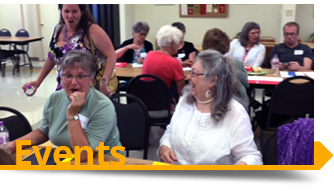
Debates are raging over the proper treatment of homeless people in cities like Los Angeles, California and Seattle, Washington. This June, mayors and city council members across America anticipate a ruling on the issue from the Supreme Court in the case of Johnson v. Grants Pass.
Should the homeless get kicked off the street? In truth, this question that misses the point. And people are overstating the Supreme Court’s influence. For the real answer, we should look back through history.
“Attention has been called to the little colony of poverty-stricken people who have built shacks on the sand,” May Young wrote to the Seattle City Council in April 1937. “It was pointed out that an unsanitary condition might exist there and that these unsightly shacks annoyed the people who had property in the vicinity.” This letter, penned in the throes of the Great Depression, confirms that there really is nothing new under the sun.
Indeed, although the 44 percent rise in unsheltered homelessness over the last 10 years pales in comparison to the two million homeless Americans during the Great Depression, community leaders’ complaints and concerns sound very much the same.
Also unchanged are the attempts to solve the problem. Before Shack Elimination Committees were formed to deal with the largest Depression-era homeless encampment in America, Seattle gave the homeless seven days to evacuate their shanties constructed from scrap lumber and tin. Similar policies are drafted today as the number of homeless camps — now constructed of tents and sleeping bags — balloons in cities across America.
There was pushback then, and there is pushback now.
“Stop homeless people from being evicted in face of a housing shortage and in face of the coming winter,” wrote one man to his city council in October 1938. Similarly, in 2018, after being fined repeatedly for sleeping in public places, Debra Blake lamented that Grants Pass, a city in Oregon, “is trying to run homeless people out of town.” Ordinances precluded her from using a blanket, a pillow, or a cardboard box for protection from the elements while sleeping within city limits.
She sued and won. Grants Pass appealed to the Supreme Court, hence the expected June ruling. The Ninth Circuit Court of Appeals struck down the city ordinance that prohibited Blake, Johnson, and other homeless people from sleeping or camping in public areas. That ruling was based on precedent from 2018’s Martin v. Boise, in which the same court ruled that such ordinances constitute cruel and unusual punishment when the supply of emergency shelter beds is inadequate.
It sounds like a math problem with some grace baked in. If there are open shelter beds, homeless people should be in them. If not, let them sleep where they can.
But after working with homeless people for more than two decades, I can say with some certainty that the homeless crisis is more than a math problem, and that more than grace is needed. We need truth, too.
The truth is found in the divergent stories of Joshua and Mary, both chronically homeless, and neither of whom knew the other. Josh lay on the sidewalk in a blanket, and Mary slept in trolley depots and pushed her belongings around town in a grocery cart, talking to herself. Josh struggled with substance abuse and the regret of his decisions that failed his family. Mary struggled with a mental breakdown after losing her young daughter to disease and her husband to epilepsy.
Josh needed to be encouraged, challenged, and held accountable. Mary, on the other hand, needed mercy, mental health care, and relational trust.
Josh was willing to occupy an open shelter bed. Mary wasn’t. So I told Josh to get off the sidewalk and get into our mission’s program, and he did. And I repeatedly told Mary she could trust me, but it took several months before she was willing to come off the streets and into our shelter.
Neither Josh nor Mary is homeless today.
What’s the point? Many Americans hope that the Supreme Court will overturn the lower court’s ruling and empower cities to pass ordinances that deal with homeless encampments. Few would argue there shouldn’t be some basic regulation surrounding the use of public spaces, but the court’s ruling — regardless of the decision — will not provide what is really needed to solve the homeless problem.
What’s required is a compassionate citizenry that will take time to get to know the Joshes, Marys, and hundreds of thousands of people who live on the streets. More shelter beds, more affordable housing, better public policy, and a just ruling by the court are positive developments, but these can never replace relational, compassion-driven charity that can distinguish between those who need mercy and those who need some gentle encouragement.
Even if a city ordinance goes so far as Seattle’s 1941 decision to burn down the shantytown, it is important to remember that that decision changed nothing. The homeless occupants simply rebuilt it afterward.
James Whitford is executive director at Watered Gardens Ministries and the True Charity Initiative.
Copyright 2024 Nexstar Media Inc. All rights reserved. This material may not be published, broadcast, rewritten, or redistributed.



